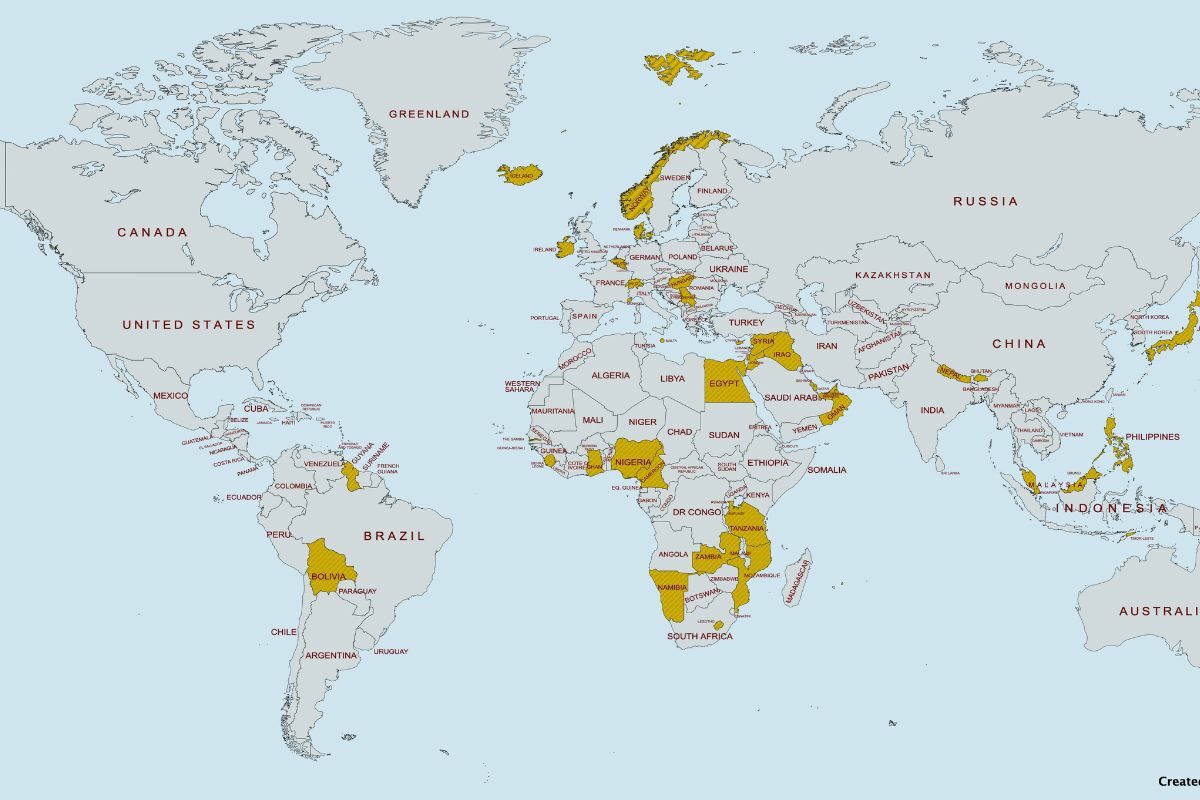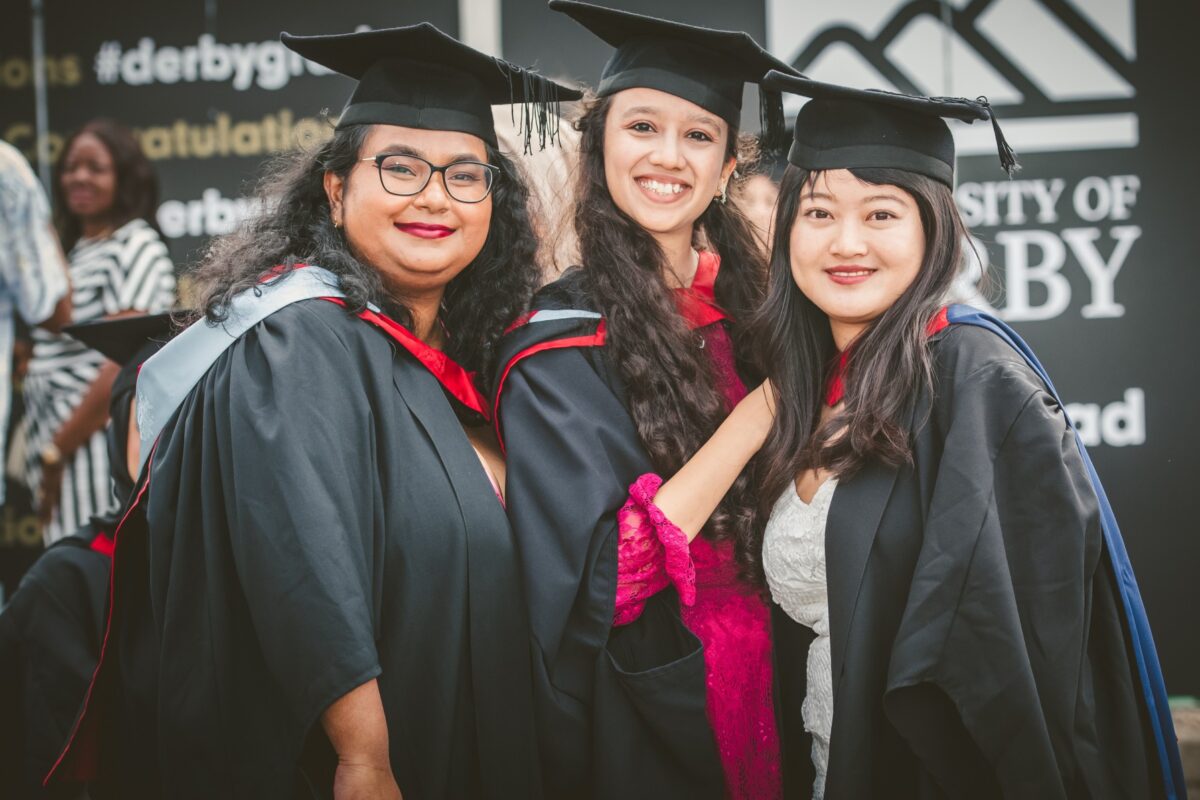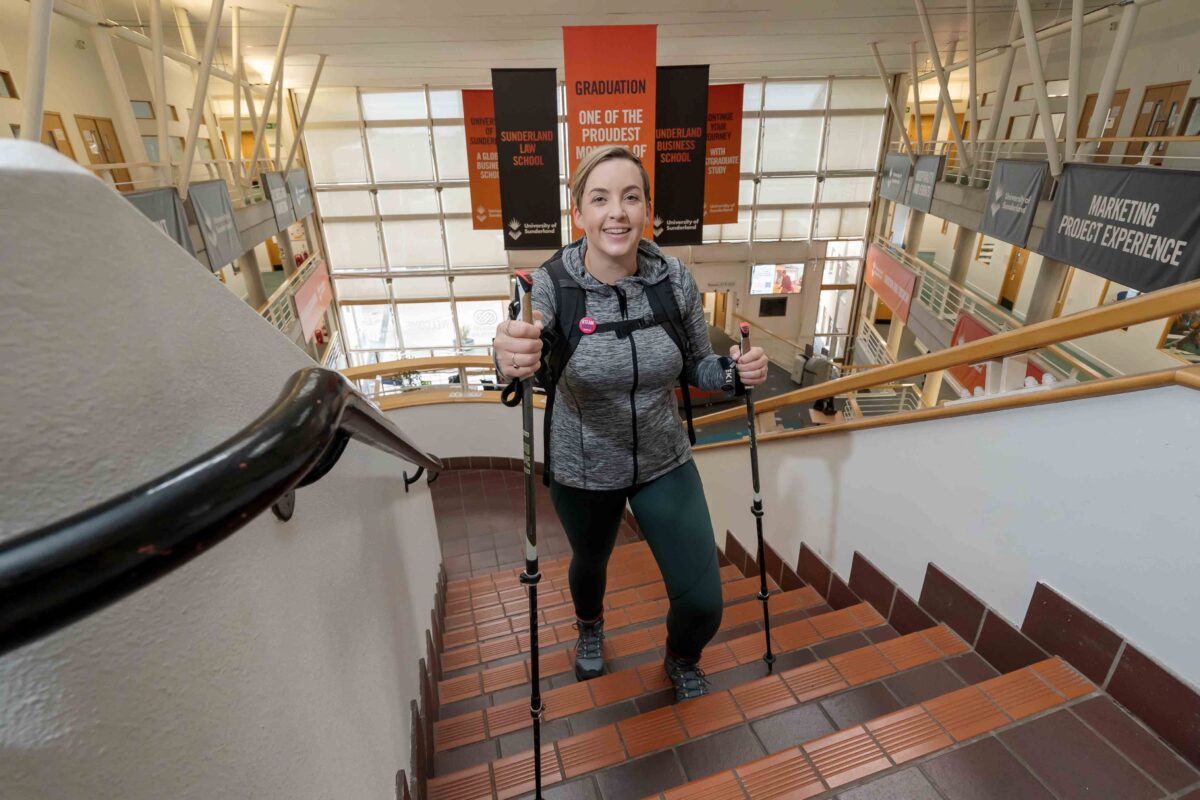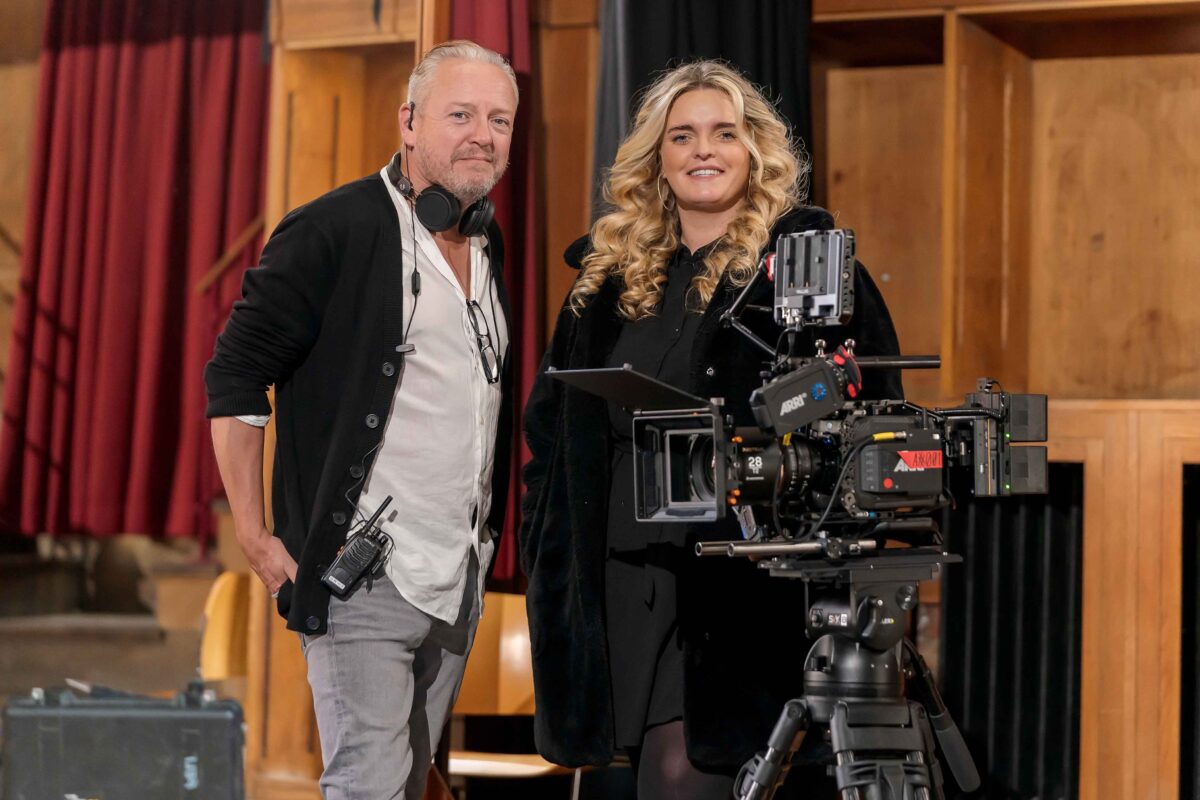2022 HEPI Soft-Power Index: UK slips further behind the US for the fifth year running

The Higher Education Policy Institute (www.hepi.ac.uk) has published its annual Soft-Power Index, which shows how many serving world leaders were educated in countries other than their own.
In the first year of the Index (2017), there were more world leaders who had been educated in the UK than in any other country, including the US. But the US overtook the UK in 2018 and then extended its lead in 2019, 2020 and 2021.
The results for 2022 show a further improvement in the performance of the US. Today, there are ten more serving world leaders (67) who were educated in the US than there were in 2017 and three fewer who were educated in the UK (55). As a result, the gap between the UK and the US has shifted from +1 to -12.
The US has built up such a commanding lead over every other country that it seems impossible to beat in the short to medium term. However, the UK remains in a comfortable second place and France remains in third place, having educated 31 serving leaders, considerably ahead of Russia in fourth place (on 10). There are 19 world leaders who appear to have had no higher education of any sort, whether in their own country or abroad.
World leaders educated in countries other than their own
| 2017 | 2018 | 2019 | 2020 | 2021 | 2022 | |
| US | 57 | 58 (+1) | 62 (+4) | 61 (-1) | 65 (+4) | 67 (+2) |
| UK | 58 | 57 (-1) | 59 (+2) | 56 (-3) | 57 (+1) | 55 (-2) |
| UK/US gap | +1 | -1 | -3 | -5 | -8 | -12 |
| France | 34 | 40 (+6) | 40 (+/-0) | 35 (-5) | 30 (-5) | 31 (+1) |
| Russia | 9 | 10 (+1) | 10 (+/-0) | 10 (+/-0) | 10 (+/-0) | 10 (+/-0) |
Australia (-3 on 2021) and Switzerland (+2) have each educated seven current serving world leaders, while Canada (+1) and Germany (+1) have educated six and Italy (+1) and South Africa (+/-0) have educated five.
The well-known soft-power benefits to the UK of educating so many people from other countries have previously been described as follows:
The combination of positive HE [higher education] experiences and positive perceptions of the UK, its people and culture, result in an emotional bond between alumni and the UK, extending the UK’s power of soft diplomacy. The trust created underpins support for the UK and its products, culture and language, resulting in brand loyalty for UK goods and travel to the UK for leisure, the promulgation of UK values during capacity building at home, and in the choice of UK partners when entering international business collaborations.(Source: https://dera.ioe.ac.uk/18261/1/13-1172-wider-benefits-of-international-higher-education-in-the-uk.pdf)
The Soft-Power Index is a rough-and-ready way of measuring the influence of different states that HEPI undertakes each summer. While it shows a clear trend, it should be supplemented with other information before coming to firm conclusions about the global standing of any one country or its educational system.
In part, the Index reflects past trends, given the time that typically elapses between someone choosing where to study and reaching a top position in their home country.
Nick Hillman, the Director of HEPI, said:
For the past six years, HEPI has calculated the number of serving world leaders educated outside their home countries. When we began, the UK was – just – at the top of the tree. In each year since, the UK has continued to perform well but the US has gradually built up a commanding lead that seems unbeatable, at least in the short term.
It is often rightly said that two points are not enough to confirm a trend. But we now have data for six consecutive years and the trend is very very clear. Compared to the baseline year of 2017, the relative position of the United States has improved in every year, including 2022, thanks to its world-beating university system.
The good news for those who care about the UK’s standing in the world is that the rules for international students have continued to improve, most recently earlier this month with the ending of compulsory police registration for international students. The newish Graduate Route Visa, which makes it easier for international students to stay in the UK to work, is proving attractive and the total number of people from other countries studying for UK higher education qualifications continues to grow.
International students improve the experience of all students by diversifying our campuses and underwriting the financial position of UK universities. Some people responded to last week’s exam results by calling for new restrictions on international students, but it would be better if the next Prime Minister were to continue the opening up of UK higher education to international students that has taken place recently. They should reject the more restrictive approach followed between 2010 and 2019.
The current Westminster Government is committed to supporting the development of soft power, as outlined in its updated Educational Exports Strategy:
The government’s approach to international education is rooted in a desire to build lasting and positive relationships around the world and establish the UK’s global position as a partner of choice. It is paramount that the government continues to develop the UK’s soft power globally and supports the UK education sector to build its expertise. Encouraging the sector to export its products and services is key to this approach. (Source: https://www.gov.uk/government/publications/international-education-strategy-2021-update/international-education-strategy-2021-update-supporting-recovery-driving-growth)
Notable changes since last summer which affect this year’s results for the UK include the following (highlighted in yellow in the table below):
- Armen Sarkissian, who spent time at the University of Cambridge, stopped being President of Armenia in February 2022.
- Carlos Andrés Alvarado Quesada, who studied at the University of Sussex, stopped being President of Costa Rica in May 2022.
- José Ramos-Horta, who is a Senior Associate Member of St Antony’s College, Oxford, became President of East Timor in May 2022.
- Hassan Diab, who studied in Leeds, Surrey and Bath, stopped being Prime Minister of Lebanon in September 2021.
- Carlos Agostinho do Rosário, who studied at Wye College, stopped being Prime Minister of Mozambique in March 2022.
- Imran Khan, who studied at the University of Oxford, stopped being Prime Minister of Pakistan in April 2022.
- Bongbong Marcos, who studied at the University of Oxford, became the President of the Philippines in June 2022.
- Abdalla Hamdok, who studied at the University of Manchester, stopped being Prime Minister of Sudan in January 2022.
- Siaosi Sovaleni, who studied in Oxford, became the Prime Minister of Tonga in December 2021.
- Nikenike Vurobaravu, who studied at the University of Westminster, became President of Vanuatu in July 2022.
- Abdrabbuh Mansur Hadi, who studied at Sandhurst, stopped being President of Yemen in April 2022.
- Hakainde Hichilema, who studied at the University of Birmingham, became President of Zambia in late August 2021.
East Timor, the Philippines, Vanuatu and Zambia appear in the list for the UK for first time since the Soft-Power Index began in 2017. Meanwhile, Armenia, Costa Rica, Lebanon, Pakistan, Sudan and Yemen, which all featured in the Index for the UK last year, no longer appear in 2022.
Countries with a leader educated in the UK, with the name(s) of the relevant serving leader(s) in 2022
| 2017 | 2018 | 2019 | 2020 | 2021 | 2022 | |
| Antigua and Barbuda (Gaston Browne) | 1 | 1 | 1 | 1 | 1 | 1 |
| Armenia | 0 | 1 | 1 | 1 | 1 | 0 |
| Australia | 1 | 1 | 0 | 0 | 0 | 0 |
| Bahrain (Sheikh Hamad bin Isa Al Khalifa & Prince Salman bin Hamad Al Khalifa) | 2 | 2 | 2 | 2 | 2 | 2 |
| Barbados (Mia Mottley) | 0 | 1 | 1 | 1 | 1 | 1 |
| Belgium (King Philippe) | 1 | 1 | 1 | 1 | 1 | 1 |
| Bhutan (Jigme Khesar Namgyel Wangchuck) | 1 | 1 | 1 | 1 | 1 | 1 |
| Bosnia and Herzegovina | 1 | 1 | 0 | 0 | 0 | 0 |
| Bolivia (Luis Arce) | 0 | 0 | 0 | 0 | 1 | 1 |
| Botswana | 1 | 0 | 0 | 0 | 0 | 0 |
| Brunei (Hassanal Bolkiah) | 1 | 1 | 1 | 1 | 1 | 1 |
| Burma | 2 | 1 | 1 | 1 | 0 | 0 |
| Cameroon (Joseph Ngute) | 0 | 0 | 1 | 1 | 1 | 1 |
| Columbia | 1 | 0 | 0 | 0 | 0 | 0 |
| Costa Rica | 0 | 1 | 1 | 1 | 1 | 0 |
| Cyprus (Nicos Anastasiades) | 1 | 1 | 1 | 1 | 1 | 1 |
| Denmark (Queen Margrethe II) | 1 | 1 | 1 | 1 | 1 | 1 |
| Dominica (Charles Savarin) | 1 | 1 | 1 | 1 | 1 | 1 |
| East Timor (José Ramos-Horta) | 0 | 0 | 0 | 0 | 0 | 1 |
| Egypt (Abdel Fattah el-Sisi) | 1 | 1 | 1 | 1 | 1 | 1 |
| The Gambia (Adama Barrow) | 1 | 1 | 1 | 1 | 1 | 1 |
| Ghana (Nana Akufo-Addo) | 1 | 1 | 1 | 1 | 1 | 1 |
| Guyana (Mark Phillips) | 1 | 1 | 1 | 1 | 1 | 1 |
| Hungary (Viktor Orbán) | 1 | 1 | 1 | 1 | 1 | 1 |
| Iceland (Guðni Th. Jóhannesson) | 1 | 1 | 1 | 1 | 1 | 1 |
| Iran | 1 | 1 | 1 | 1 | 0 | 0 |
| Iraq (Barham Salih) | 1 | 1 | 1 | 1 | 1 | 1 |
| Ireland (Michael D Higgins) | 1 | 1 | 1 | 1 | 1 | 1 |
| Italy | 0 | 1 | 1 | 1 | 0 | 0 |
| Japan (Emperor Naruhito) | 0 | 0 | 1 | 1 | 1 | 1 |
| Jordan (King Abdullah II & Bisher Al-Khasawneh) | 1 | 1 | 1 | 1 | 2 | 2 |
| Lebanon | 0 | 0 | 0 | 1 | 1 | 0 |
| Lesotho (King Letsie III) | 1 | 1 | 1 | 1 | 1 | 1 |
| Liechtenstein (Hereditary Prince Alois) | 1 | 1 | 1 | 1 | 1 | 1 |
| Luxembourg (Grand Duke Henri) | 1 | 1 | 1 | 1 | 1 | 1 |
| Malawi | 1 | 1 | 1 | 0 | 0 | 0 |
| Malaysia (Abdullah of Pahang) | 2 | 1 | 1 | 1 | 1 | 1 |
| Malta (George Vella) | 1 | 1 | 2 | 1 | 1 | 1 |
| Mauritius (Prithvirajsing Roopun & Pravind Jugnauth) | 2 | 1 | 1 | 2 | 2 | 2 |
| Monaco (Prince Albert II) | 1 | 1 | 1 | 1 | 1 | 1 |
| Mozambique (Filipe Nyusi) | 2 | 2 | 2 | 2 | 2 | 1 |
| Namibia (Hage Geingob) | 1 | 1 | 1 | 1 | 1 | 1 |
| Nepal (Sher Bahadur Deuba) | 1 | 0 | 0 | 0 | 1 | 1 |
| Nigeria (Muhammadu Buhari) | 2 | 1 | 1 | 1 | 1 | 1 |
| Norway (King Harald V) | 1 | 1 | 1 | 1 | 1 | 1 |
| Oman (Haitham bin Tariq) | 1 | 1 | 1 | 1 | 1 | 1 |
| Pakistan | 0 | 1 | 1 | 1 | 1 | 0 |
| Palestine (Mohammad Shtayyeh) | 1 | 1 | 1 | 1 | 1 | 1 |
| Peru | 2 | 1 | 1 | 0 | 0 | 0 |
| Philippines (Bongbong Marcos) | 0 | 0 | 0 | 0 | 0 | 1 |
| Qatar (Tamim bin Hamad Al Thani) | 2 | 2 | 2 | 1 | 1 | 1 |
| Saint Vincent and the Grenadines (Ralph Gonsalves) | 1 | 1 | 1 | 1 | 1 | 1 |
| Serbia (Ana Brnabić) | 1 | 1 | 1 | 1 | 1 | 1 |
| Seychelles (Wavel Ramkalawan) | 0 | 0 | 0 | 0 | 1 | 1 |
| Sierra Leone (Julius Maada Bio) | 0 | 2 | 2 | 2 | 1 | 1 |
| Singapore (Lee Hsien Loong) | 1 | 1 | 1 | 1 | 1 | 1 |
| Somalia | 1 | 1 | 1 | 0 | 0 | 0 |
| Sudan | 0 | 0 | 0 | 1 | 1 | 0 |
| Switzerland (Karin Keller-Sutter) | 0 | 0 | 1 | 1 | 1 | 1 |
| Syria (Bashar al-Assad) | 1 | 1 | 1 | 1 | 1 | 1 |
| Tanzania (Samia Suluhu Hassan) | 0 | 0 | 0 | 0 | 1 | 1 |
| Tonga (King Tupou VI and Siaosi Sovaleni) | 1 | 1 | 1 | 1 | 1 | 2 |
| Tuvalu | 1 | 1 | 1 | 0 | 0 | 0 |
| United Arab Emirates (Khalifa bin Zayed Al Nahyan & Mohammed bin Rashid Al Maktoum) | 2 | 2 | 2 | 2 | 2 | 2 |
| Vanuatu (Nikenike Vurobaravu) | 0 | 0 | 0 | 0 | 0 | 1 |
| Yemen | 1 | 1 | 1 | 1 | 1 | 0 |
| Zambia (Hakainde Hichilema) | 0 | 0 | 0 | 0 | 0 | 1 |
| TOTAL | 58 | 57 | 59 | 56 | 57 | 55 |
Countries led by one or more senior leaders educated in the UK, 2022
(The Seychelles and Tonga cannot be seen on this compressed map.)
The 67 world leaders educated in the United States lead the following countries: Bahrain (2); Belgium (2); Belize (1); Bhutan (2); Botswana (1); Bulgaria (2); Colombia (1); Costa Rica (1); Dominica (1); Dominican Republic (1); East Timor (1); Egypt (1); Eswatini (1); Georgia (1); Greece (1); Guinea (1); Guinea-Bissau (1); Guyana (1); Haiti (1); Ireland (1); Israel (1); Italy (1); Ivory Coast (2); Jordan (2); Kenya (1); Latvia (1); Lebanon (2); Lesotho (1); Liberia (1); Malawi (1); Marshall Islands (1); Micronesia (1); Moldova (2); Monaco (1); Mongolia (1); Namibia (2); Nigeria (1); Pakistan (1); Palau (1); Panama (1); Paraguay (1); Philippines (1); Poland (1); Qatar (1); Rwanda (1); Serbia (1); Sierra Leone (1); Singapore (1); Slovenia (1); Somalia (1); South Korea (1); Spain (1); Sri Lanka (1); Sweden (1); Tanzania (1); Togo (2); and Tonga (1).











Responses